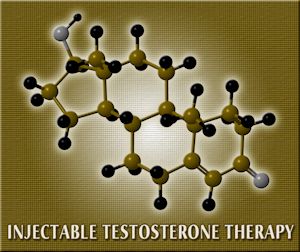Introduction to Testosterone Replacement Therapy (TRT)
Testosterone Replacement Therapy (TRT) has become a widely discussed treatment among American men seeking to address symptoms associated with low testosterone levels, such as decreased libido, fatigue, and muscle loss. As the prevalence of TRT use increases, it is crucial to examine its impact on various aspects of health, including chest health.
The Role of Testosterone in Male Health
Testosterone, the primary male sex hormone, plays a vital role in maintaining overall health and well-being. It contributes to muscle mass, bone density, fat distribution, and the production of red blood cells. Additionally, testosterone influences mood, cognitive function, and sexual health. Given its multifaceted role, any alterations in testosterone levels through TRT can have widespread effects on the body.
TRT and Chest Health: An Overview
When considering the impact of TRT on chest health, it is essential to examine both the potential benefits and risks. Some studies suggest that TRT may contribute to improved chest muscle mass and strength, which can be beneficial for men experiencing age-related muscle loss. However, there are also concerns about the potential adverse effects of TRT on chest health, particularly in relation to cardiovascular health and gynecomastia.
Potential Benefits of TRT on Chest Health
One of the primary benefits of TRT for chest health is the potential for increased muscle mass and strength. As testosterone levels decline with age, many men experience sarcopenia, or age-related muscle loss. TRT has been shown to help counteract this process by promoting protein synthesis and muscle growth. This can lead to improved chest muscle mass, which may enhance physical appearance and functional capacity.
Risks and Concerns: Cardiovascular Health
While TRT may offer benefits for chest muscle health, there are concerns about its potential impact on cardiovascular health. Some studies have suggested a possible link between TRT and an increased risk of cardiovascular events, such as heart attacks and strokes. These concerns are particularly relevant to chest health, as cardiovascular issues can manifest as chest pain or discomfort. It is crucial for men considering TRT to discuss their cardiovascular risk factors with a healthcare provider before initiating treatment.
Risks and Concerns: Gynecomastia
Another potential risk of TRT related to chest health is the development of gynecomastia, or the enlargement of male breast tissue. This condition can cause physical discomfort and emotional distress. The exact mechanism by which TRT may contribute to gynecomastia is not fully understood, but it is thought to be related to the conversion of testosterone to estrogen. Men considering TRT should be aware of this potential side effect and discuss it with their healthcare provider.
Monitoring and Management of TRT
Given the potential benefits and risks associated with TRT and chest health, it is crucial for men undergoing this treatment to be closely monitored by a healthcare professional. Regular check-ups, blood tests, and imaging studies may be necessary to assess the impact of TRT on chest health and overall well-being. If any concerning symptoms or side effects arise, such as chest pain or the development of gynecomastia, prompt medical attention should be sought.
Conclusion: Balancing Benefits and Risks
Testosterone Replacement Therapy can have a significant impact on chest health in American men. While it may offer benefits such as improved muscle mass and strength, there are also potential risks to consider, including cardiovascular concerns and the development of gynecomastia. Men considering TRT should engage in a thorough discussion with their healthcare provider to weigh the potential benefits against the risks and to develop an appropriate monitoring and management plan. By taking a proactive and informed approach, men can optimize their chest health and overall well-being while undergoing TRT.
Contact Us Today For A Free Consultation

- TRT's Impact on Mental Health in American Men: Depression, Anxiety, and Cognition [Last Updated On: February 21st, 2025] [Originally Added On: February 21st, 2025]
- Economic Impact of Testosterone Replacement Therapy on U.S. Healthcare System [Last Updated On: March 16th, 2025] [Originally Added On: March 16th, 2025]
- TRT: Understanding Impacts on Prostate Health and Cancer Risk in American Men [Last Updated On: March 18th, 2025] [Originally Added On: March 18th, 2025]
- Testosterone Replacement Therapy: American Men's Experiences and Impact on Quality of Life [Last Updated On: March 18th, 2025] [Originally Added On: March 18th, 2025]
- Optimizing TRT: Diet, Exercise, and Holistic Health for American Men [Last Updated On: March 19th, 2025] [Originally Added On: March 19th, 2025]
- Navigating Insurance for Testosterone Replacement Therapy: A Guide for American Males [Last Updated On: March 19th, 2025] [Originally Added On: March 19th, 2025]
- Testosterone Replacement Therapy: Benefits, Risks, and Management for American Men [Last Updated On: March 19th, 2025] [Originally Added On: March 19th, 2025]
- Testosterone Replacement Therapy: Dosage, Administration, and Lifestyle Integration for American Males [Last Updated On: March 20th, 2025] [Originally Added On: March 20th, 2025]
- Enhancing TRT Outcomes with Alternative Therapies: A Holistic Approach for American Men [Last Updated On: March 20th, 2025] [Originally Added On: March 20th, 2025]
- Future of TRT: Innovations and Impacts on American Men's Health [Last Updated On: March 20th, 2025] [Originally Added On: March 20th, 2025]
- Testosterone Replacement Therapy: Benefits and Risks for Young American Men [Last Updated On: March 21st, 2025] [Originally Added On: March 21st, 2025]
- TRT Improves Sleep Quality in American Males with Hypogonadism: A Comprehensive Overview [Last Updated On: March 21st, 2025] [Originally Added On: March 21st, 2025]
- TRT: Managing Hypogonadism in American Males - Benefits, Risks, and Future Trends [Last Updated On: March 21st, 2025] [Originally Added On: March 21st, 2025]
- Testosterone Replacement Therapy: Combating Fatigue in American Men [Last Updated On: March 21st, 2025] [Originally Added On: March 21st, 2025]
- TRT Boosts Bone Health in American Males: Benefits, Evidence, and Lifestyle Integration [Last Updated On: March 21st, 2025] [Originally Added On: March 21st, 2025]
- Testosterone Replacement Therapy: Cultural Attitudes and Masculinity in American Men [Last Updated On: March 22nd, 2025] [Originally Added On: March 22nd, 2025]
- Testosterone Replacement Therapy: Managing Side Effects in American Males [Last Updated On: March 22nd, 2025] [Originally Added On: March 22nd, 2025]
- Testosterone Replacement Therapy: Enhancing Muscle Mass in American Men [Last Updated On: March 23rd, 2025] [Originally Added On: March 23rd, 2025]
- TRT's Impact on Immune Function: Benefits, Risks, and Monitoring in American Men [Last Updated On: March 23rd, 2025] [Originally Added On: March 23rd, 2025]
- Testosterone Replacement Therapy: Benefits, Risks, and Process for American Men [Last Updated On: March 23rd, 2025] [Originally Added On: March 23rd, 2025]
- Optimizing Testosterone Replacement Therapy: Monitoring, Adjustments, and Lifestyle Integration for American Males [Last Updated On: March 23rd, 2025] [Originally Added On: March 23rd, 2025]
- Testosterone Replacement Therapy: Impacts on Cardiovascular Health in American Men [Last Updated On: March 23rd, 2025] [Originally Added On: March 23rd, 2025]
- TRT in American Men: Balancing Benefits with Hair Loss Risks [Last Updated On: March 24th, 2025] [Originally Added On: March 24th, 2025]
- Testosterone Replacement Therapy: A Promising Treatment for Depression in American Males [Last Updated On: March 24th, 2025] [Originally Added On: March 24th, 2025]
- Testosterone Replacement Therapy: Benefits, Risks, and Management for Aging American Males [Last Updated On: March 24th, 2025] [Originally Added On: March 24th, 2025]
- TRT Enhances Mood and Vitality in American Males: A Comprehensive Overview [Last Updated On: March 24th, 2025] [Originally Added On: March 24th, 2025]
- TRT: Benefits and Risks for Vision Health in American Males [Last Updated On: March 24th, 2025] [Originally Added On: March 24th, 2025]
- TRT's Potential in Enhancing Cognitive Function in American Men with Hypogonadism [Last Updated On: March 24th, 2025] [Originally Added On: March 24th, 2025]
- TRT: Enhancing Joint Health in American Males Through Hormone Therapy [Last Updated On: March 25th, 2025] [Originally Added On: March 25th, 2025]
- TRT: Enhancing Weight Management in American Males with Low Testosterone [Last Updated On: March 25th, 2025] [Originally Added On: March 25th, 2025]
- Testosterone Replacement Therapy: Enhancing Cognitive Function in American Men [Last Updated On: March 25th, 2025] [Originally Added On: March 25th, 2025]
- TRT Impact on Male Fertility: Risks, Alternatives, and Management Strategies [Last Updated On: March 25th, 2025] [Originally Added On: March 25th, 2025]
- Testosterone Replacement Therapy: Benefits, Risks, and Realistic Expectations for Men [Last Updated On: March 25th, 2025] [Originally Added On: March 25th, 2025]
- Testosterone Replacement Therapy: Cost-Benefit Analysis and Accessibility in the U.S. [Last Updated On: March 25th, 2025] [Originally Added On: March 25th, 2025]
- TRT: Enhancing Stamina and Vitality in American Males [Last Updated On: March 25th, 2025] [Originally Added On: March 25th, 2025]
- TRT's Role in Enhancing Injury Recovery Among American Males: Benefits and Considerations [Last Updated On: March 26th, 2025] [Originally Added On: March 26th, 2025]
- TRT: A Promising Approach to Managing Chronic Pain in American Males [Last Updated On: March 26th, 2025] [Originally Added On: March 26th, 2025]
- TRT: A Promising Approach to Stress Management in American Males with Low Testosterone [Last Updated On: March 26th, 2025] [Originally Added On: March 26th, 2025]
- TRT's Impact on Kidney Health: Benefits, Risks, and Monitoring for American Males [Last Updated On: March 26th, 2025] [Originally Added On: March 26th, 2025]
- Testosterone Replacement Therapy: Benefits, Risks, and Holistic Approaches for Low Libido [Last Updated On: March 27th, 2025] [Originally Added On: March 27th, 2025]
- TRT and Liver Health: Risks, Monitoring, and Mitigation Strategies for American Men [Last Updated On: March 27th, 2025] [Originally Added On: March 27th, 2025]
- TRT's Impact on Diabetes: Benefits, Risks, and Personalized Management for American Men [Last Updated On: March 27th, 2025] [Originally Added On: March 27th, 2025]
- Testosterone Replacement Therapy: Benefits, Risks, and Management for American Men [Last Updated On: March 27th, 2025] [Originally Added On: March 27th, 2025]
- TRT: Enhancing Emotional Well-being in Men with Low Testosterone [Last Updated On: March 27th, 2025] [Originally Added On: March 27th, 2025]
- TRT Benefits for American Males: Enhancing Skin Health and Vitality [Last Updated On: March 27th, 2025] [Originally Added On: March 27th, 2025]
- TRT Boosts Confidence and Vitality in American Males: A Comprehensive Overview [Last Updated On: March 28th, 2025] [Originally Added On: March 28th, 2025]
- Testosterone Therapy: Benefits, Risks, and Side Effects for American Men [Last Updated On: March 28th, 2025] [Originally Added On: March 28th, 2025]
- TRT's Impact on Respiratory Health in American Men: Benefits and Considerations [Last Updated On: March 28th, 2025] [Originally Added On: March 28th, 2025]
- TRT's Impact on Digestive Health: Insights for American Men [Last Updated On: March 28th, 2025] [Originally Added On: March 28th, 2025]
- Testosterone Replacement Therapy: Enhancing Effects with Lifestyle Changes for American Males [Last Updated On: March 29th, 2025] [Originally Added On: March 29th, 2025]
- Choosing the Right TRT Clinic: A Guide for American Males [Last Updated On: March 29th, 2025] [Originally Added On: March 29th, 2025]
- TRT's Impact on Blood Pressure: Risks, Benefits, and Management for American Men [Last Updated On: March 29th, 2025] [Originally Added On: March 29th, 2025]
- TRT's Impact on Cholesterol: Essential Insights for American Males [Last Updated On: March 30th, 2025] [Originally Added On: March 30th, 2025]
- Testosterone Replacement Therapy: Restoring Vitality in American Males with Hypogonadism [Last Updated On: April 2nd, 2025] [Originally Added On: April 2nd, 2025]
- TRT's Impact on Thyroid Function: Monitoring and Management Strategies for American Men [Last Updated On: April 2nd, 2025] [Originally Added On: April 2nd, 2025]
- TRT's Impact on Blood Sugar: Insights for American Men Considering Therapy [Last Updated On: April 3rd, 2025] [Originally Added On: April 3rd, 2025]
- Navigating Testosterone Replacement Therapy: Understanding and Interpreting Lab Results [Last Updated On: April 7th, 2025] [Originally Added On: April 7th, 2025]
- Testosterone Replacement Therapy: Enhancing Athletic Performance Safely and Ethically [Last Updated On: April 7th, 2025] [Originally Added On: April 7th, 2025]
- Testosterone Replacement Therapy: Benefits, Allergic Risks, and Management Strategies [Last Updated On: April 8th, 2025] [Originally Added On: April 8th, 2025]
- TRT's Impact on Dental Health: Insights and Recommendations for American Men [Last Updated On: April 9th, 2025] [Originally Added On: April 9th, 2025]
- Maximizing TRT Benefits: Integrating Therapy with Lifestyle and Supplements for American Males [Last Updated On: April 9th, 2025] [Originally Added On: April 9th, 2025]
- TRT and Hearing Health: Considerations for American Males [Last Updated On: April 10th, 2025] [Originally Added On: April 10th, 2025]
- Legal Aspects of Testosterone Replacement Therapy for American Males [Last Updated On: April 10th, 2025] [Originally Added On: April 10th, 2025]
- Guide to Managing Testosterone Replacement Therapy While Traveling [Last Updated On: April 11th, 2025] [Originally Added On: April 11th, 2025]
- Testosterone Replacement Therapy: Enhancing Social Life and Health in American Males [Last Updated On: April 12th, 2025] [Originally Added On: April 12th, 2025]
- TRT's Impact on Eye Health: Benefits for American Men [Last Updated On: April 13th, 2025] [Originally Added On: April 13th, 2025]
- TRT's Impact on Male Fertility: Risks, Evidence, and Mitigation Strategies [Last Updated On: April 13th, 2025] [Originally Added On: April 13th, 2025]
- TRT's Impact on Nail Health: Benefits, Risks, and Management Strategies [Last Updated On: April 13th, 2025] [Originally Added On: April 13th, 2025]
- TRT's Impact on Hand Health in American Men: Strength, Dexterity, and Joints [Last Updated On: April 15th, 2025] [Originally Added On: April 15th, 2025]
- Exploring Social Implications of Testosterone Replacement Therapy in American Males [Last Updated On: April 16th, 2025] [Originally Added On: April 16th, 2025]
- TRT: Enhancing Work Performance in American Males - Benefits and Risks [Last Updated On: April 16th, 2025] [Originally Added On: April 16th, 2025]
- Testosterone Replacement Therapy: Enhancing Artistic Expression in American Males [Last Updated On: April 16th, 2025] [Originally Added On: April 16th, 2025]
- TRT's Impact on Neck Health: Considerations for American Men [Last Updated On: April 16th, 2025] [Originally Added On: April 16th, 2025]
- TRT: Enhancing Foot Health in American Males Through Testosterone Therapy [Last Updated On: April 17th, 2025] [Originally Added On: April 17th, 2025]
- Ethical Considerations in Testosterone Replacement Therapy for American Men [Last Updated On: April 19th, 2025] [Originally Added On: April 19th, 2025]
- Testosterone Replacement Therapy: Psychological Benefits and Risks for American Men [Last Updated On: April 19th, 2025] [Originally Added On: April 19th, 2025]
- TRT: Enhancing Back Health in American Males with Low Testosterone [Last Updated On: April 20th, 2025] [Originally Added On: April 20th, 2025]
Word Count: 606





















